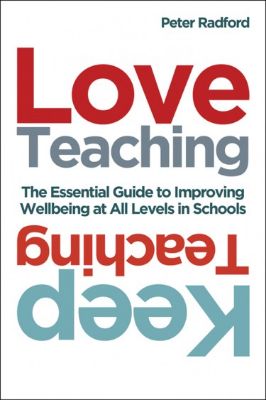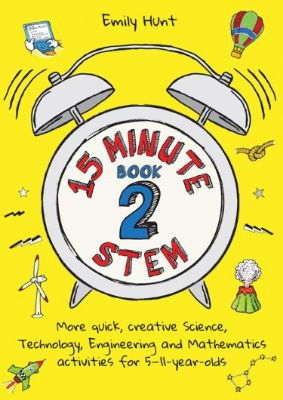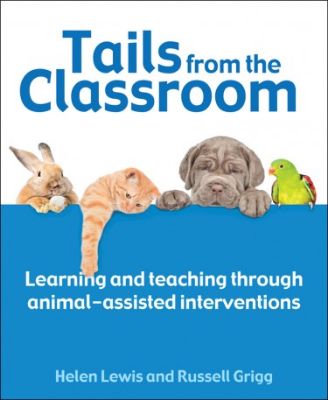Cookies help us deliver our services. By using our services, you agree to our use of cookies.
News
A special discount to help schools and teachers this spring term
Monday, 1 February 2021
‹To take advantage, use the code SPRING30 at checkout.
Read more
UKEdChat's After Hours webinar with Peter Radford is available to watch on demand
Friday, 29 January 2021
We™ve all had days went our body is present, but our mind is absent, dwelling instead on troubling thoughts and anxieties from both inside and outside of school.
Effective learning cannot happen useless one is in the right state of mind. Rather than being a fringe activity, ensuring that everyone is in a fit state to learn (and teach) is vital, and therefore well-being should be a central part of making sure lessons and learning is successful. Improving well-being should permeate every part of school life, the curriculum, and be part of the school™s duty of care to both pupils and staff.
Drawing on inspiration from Peter Radford™s book Love Teaching, Keep Teaching, in this #UKEdChat discussion, which took place on Thursday 28th January 2021 at 8pm(UK) we discussed what is the status of boosting well-being in schools, how pupil well-being (or a lack of it) impacts on your lessons, and how schools can promote better communication of how we are as a school community.
Questions
Watch the webinar here.
Find out more about Love Teaching, Keep Teaching here.
Read more
Effective learning cannot happen useless one is in the right state of mind. Rather than being a fringe activity, ensuring that everyone is in a fit state to learn (and teach) is vital, and therefore well-being should be a central part of making sure lessons and learning is successful. Improving well-being should permeate every part of school life, the curriculum, and be part of the school™s duty of care to both pupils and staff.
Drawing on inspiration from Peter Radford™s book Love Teaching, Keep Teaching, in this #UKEdChat discussion, which took place on Thursday 28th January 2021 at 8pm(UK) we discussed what is the status of boosting well-being in schools, how pupil well-being (or a lack of it) impacts on your lessons, and how schools can promote better communication of how we are as a school community.
Questions
- What is the status of well-being in your school? Is it something which your school actively promotes?
- What steps do you as an individual teacher do to ensure the well-being of your pupils is promoted?
- Do schools have a duty of care to promote well-being outside of school?
- How should our school system be changed to improve the well-being of pupils?
- What can senior leaders do to improve the well-being of pupils?
- What can senior leaders do to improve the well-being of teachers?
- How can teachers maintain a healthy balance between home and school life?
- What one thing would improve your well-being as a teacher?
Watch the webinar here.
Find out more about Love Teaching, Keep Teaching here.
The SecEd Podcast: Effective teaching for SEN
Thursday, 28 January 2021
Listen to the episode here. The following is taken from the SecEd website:
Hosted by Matt Bromley, this wide-ranging and practical discussion considers:
Discover Natalie's books The Teacher's Guide to SEN and The Perfect SENCO.
Read more
Hosted by Matt Bromley, this wide-ranging and practical discussion considers:
- The principles of good teaching for SEN students.
- Common barriers to success.
- The implications for pedagogy.
- The use of teaching assistants.
- Models of intervention.
- How we should work with families.
- The SEND in Mainstream Schools Guidance.
- Implementing the graduated approach (Assess, Plan, Do, Review).
- Adaptive teaching (dispelling the myths of differentiation).
- Cognitive Load Theory.
- Masking, sensory overload, and making the curriculum and resources accessible.
Discover Natalie's books The Teacher's Guide to SEN and The Perfect SENCO.
Motivation in MFL isn't rocket science!
Thursday, 28 January 2021
In this session Crista will share with you how to hook learners in from the minute they enter the classroom (or you do!) to ensure that your lesson launches with a (metaphorical) bang! Crista will share tips, techniques and tried and tested strategies to help MFL teachers, TAs and trainees build and enhance their own repertoire for motivating every learner, even the most reluctant learners to be brave, get involved and achieve success in your MFL classroom (and beyond) ensuring emotional engagement, positivity, a happy classroom and also deep and meaningful language learning experiences for all.
Find out more and book your place here.
Discover Crista™s book Independent Thinking on MFL here.
Read more
Find out more and book your place here.
Discover Crista™s book Independent Thinking on MFL here.
15-Minute STEM Book 2 has been reviewed!
Wednesday, 27 January 2021
With home learning now embedded in our education system and with many parents reaching into their memories of their own school days for resources, a new book about STEM activities is most welcome. 15-Minute STEM Book 2 by Emily Hunt is a great addition to the home science library with activities across the spectrum of learning.
It™s refreshing to see resources for children that take a detailed and methodical approach to conducting experiments and investigations at home, and my bet is that children will want to spend much more time than the 15 minutes described to introduce the STEM connections.
Activities are clearly explained in well illustrated and laid out pages, with the instructions including what equipment is needed (all pretty much in the household cupboards), what to do and how, suggestions for
further investigations and the lessons and scientific principles to be learned.
Forty different activities are described that cover all aspects of STEM “ from knots to constellations, and from origami engineering to the environmental science of ocean plastic pollution. With a comprehensive
Q&A introduction for hesitant or nervous parents that includes the excellent advice of letting children lead the learning, and finding the key takeaway points, this book offers a practical and wide-ranging selection of
engaging and fun experiments.
Recognising that they are innately curious “ and therefore naturally and instinctively scientists now “ is a great point of principle for turning children onto STEM for future study and careers. 15-Minute STEM Book
2 will stimulate curiosity and motivate the investigator and researcher in all children.
Rick Hall, founder of Ignite!
Discover 15-Minute STEM Book 2 here.
Read more
It™s refreshing to see resources for children that take a detailed and methodical approach to conducting experiments and investigations at home, and my bet is that children will want to spend much more time than the 15 minutes described to introduce the STEM connections.
Activities are clearly explained in well illustrated and laid out pages, with the instructions including what equipment is needed (all pretty much in the household cupboards), what to do and how, suggestions for
further investigations and the lessons and scientific principles to be learned.
Forty different activities are described that cover all aspects of STEM “ from knots to constellations, and from origami engineering to the environmental science of ocean plastic pollution. With a comprehensive
Q&A introduction for hesitant or nervous parents that includes the excellent advice of letting children lead the learning, and finding the key takeaway points, this book offers a practical and wide-ranging selection of
engaging and fun experiments.
Recognising that they are innately curious “ and therefore naturally and instinctively scientists now “ is a great point of principle for turning children onto STEM for future study and careers. 15-Minute STEM Book
2 will stimulate curiosity and motivate the investigator and researcher in all children.
Rick Hall, founder of Ignite!
Discover 15-Minute STEM Book 2 here.
How animal interaction can help children learn better
Tuesday, 26 January 2021
Nearly all children love animals - usually much more than they love learning. So why not put the two together, to see if animals can help children learn?
It's not a new idea, but it has been gathering pace in recent years, and before the latest lockdown many teachers had got into the habit of taking animals - like the school rabbit or their own dog - into lessons.
And while creatures, ranging from hamsters, dogs and lizards to larger (not so school-friendly) animals like horses, can boost children's wellbeing, animal-assisted interventions (AAIs) can also help children's learning and development.
Read the full article here.
Find out more about Tails from the Classroom here.
Read more
It's not a new idea, but it has been gathering pace in recent years, and before the latest lockdown many teachers had got into the habit of taking animals - like the school rabbit or their own dog - into lessons.
And while creatures, ranging from hamsters, dogs and lizards to larger (not so school-friendly) animals like horses, can boost children's wellbeing, animal-assisted interventions (AAIs) can also help children's learning and development.
Read the full article here.
Find out more about Tails from the Classroom here.





